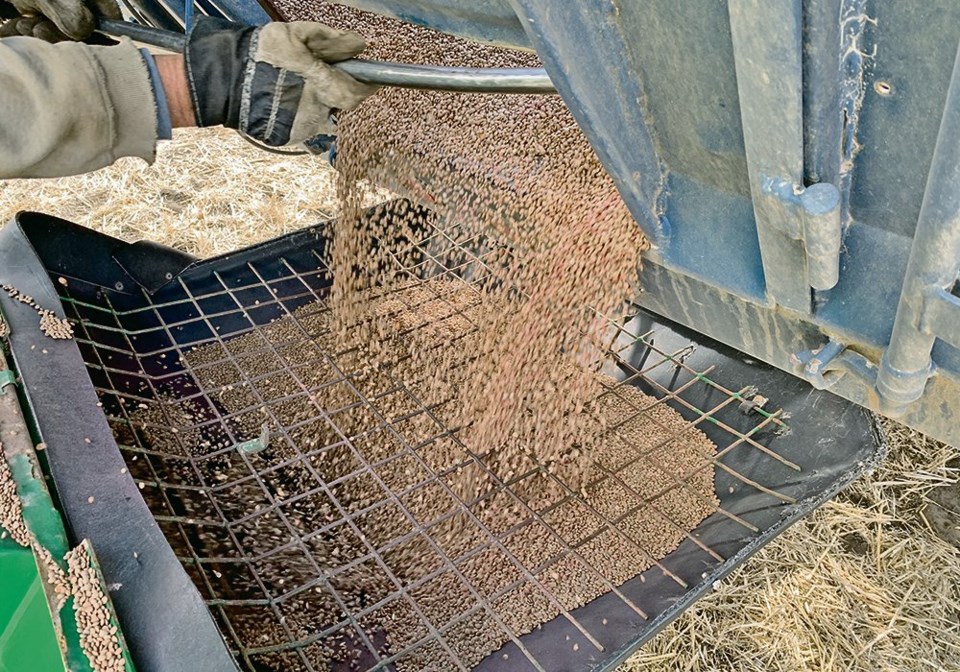That’s because pedigreed seed supplies of many crop types and varieties are in short supply this winter due to low yields and strong market demand for commercial grain.
“I hate to ring the alarm bells, but it’s pretty concerning what’s out there,” said SSGA president Mike Shewchuk, a pedigreed seed grower from Blaine Lake, Sask.
“Talking to other people across the province, there’s a lack of almost everything everywhere. Obviously there were pockets that were better off than others, but I don’t think those areas (with better yields) will have enough extra seed to fill the void that we’re anticipating.”
Sourcing pedigreed seed anywhere in Western Canada — regardless of the crop type or variety — is expected to be more difficult this winter, given short supplies and high prices that were being offered for commercial grain late in 2021.
Extremely competitive cash bids for commercial grain of almost any kind were expected to lure larger-than-usual amounts of pedigreed seed into commercial grain markets this winter, Shewchuk said.
Also contributing to a potential shortfall of pedigreed seed is the fact that yields for all crops — pedigreed or commercial — were well below normal in many parts of Western Canada last year.
“Across the board, we saw very widespread drought, and if not drought, there was the record amounts of heat that really had an impact on this year’s crop, including pedigreed seed,” Shewchuk said recently.
“As a result, we’re seeing a real reduction in basically all crop kinds for seed availability.
“It’s putting real strain on what’s available out there for seed supply. It’s definitely low.”
It’s hard to know exactly how much pedigreed seed will be available this spring and which crop types will be in shortest supply, Shewchuk said.
Based on conversations with other seed growers, he suggested that supplies of pedigreed wheat seed might a bit more plentiful than pedigreed supplies of other crop kinds.
“When you look at crops like barley, peas, oats and flax, I think those are the ones that are going to be really hard hit,” he said.
It’s also unclear what impact historically high commercial grain prices will have on pedigreed seed supplies.
In mid-November cash prices for commercial flax were in the $40 to $50 per bushel range at many Saskatchewan locations.
That’s way more than pedigreed seed growers would normally be charging for certified flax seed.
High grain prices are “potentially going to take quite a bit of the pedigreed seed that’s out there and push it into a commercial market,” Shewchuk said.
“Time will tell what we have left by spring, but already it’s a bit concerning.”

